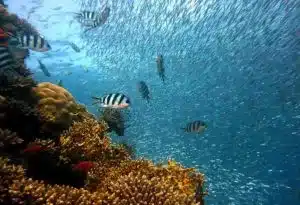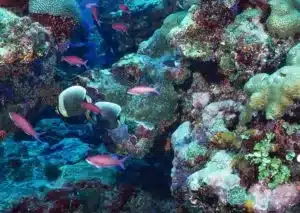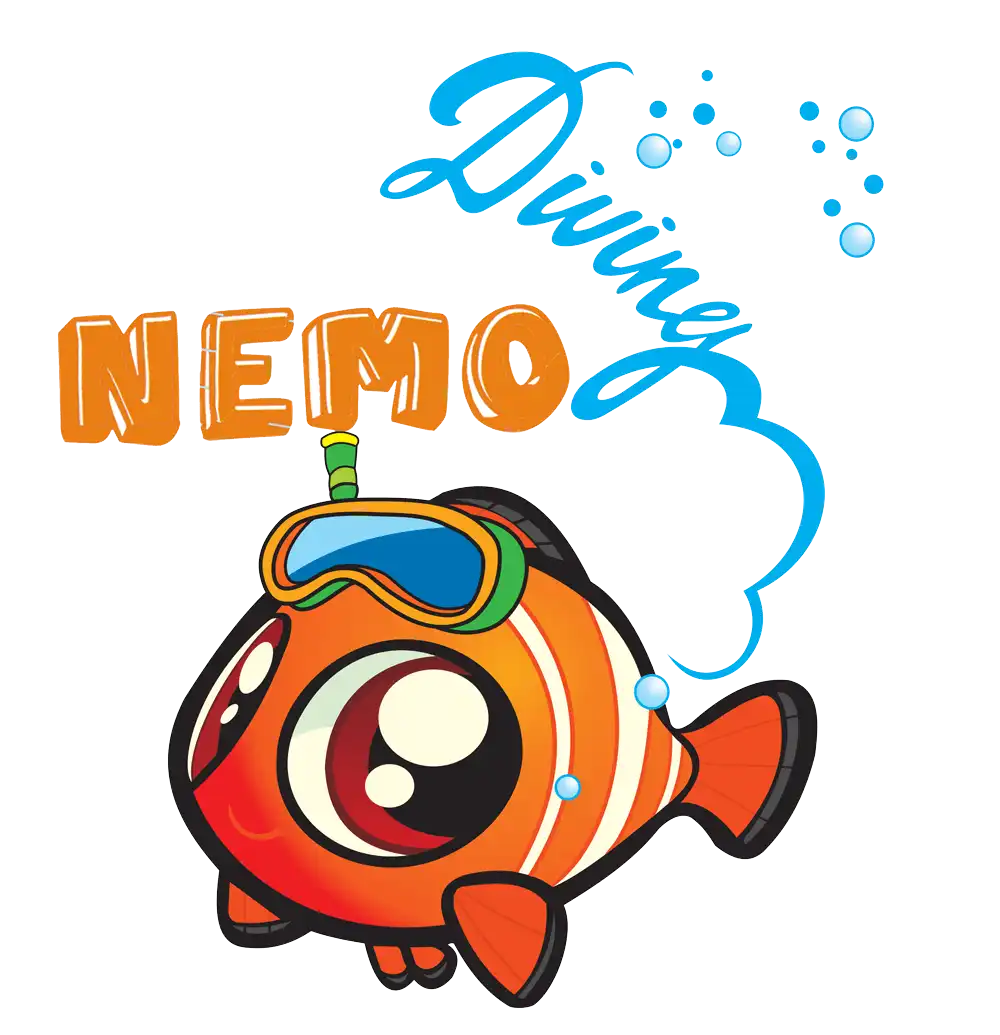
Coral reefs are tagged as “the rainforests of the seas” because they are significant ecosystems. Coral reefs are vital and diverse habitats for marine life which make them invaluable. According to marine biologists, around 25 percent of all marine creatures live in and around coral reefs. These reefs also act as nurseries for juvenile fish, where they have better chances to grow. Sadly, coral reefs in different parts of the world face various threats including natural and human-related factors. Is scuba diving one of these threats?
Scuba diving is a fun and exciting underwater activity but it requires responsibility to protect our vast oceans. Without proper awareness, scuba diving activity may harm corals. One of the roles of the scuba dive operator is to raise awareness among divers and promote sustainable diving practices to help conserve coral reefs. At Nemo Diving Center, we teach our divers to take an active part in ocean conservation. Want to be part of it? Join our scuba diving Oman, Dubai, and Fujairah clean-up dives.
You can help protect the coral reefs by improving your buoyancy control. This important skill will help you have better control of your fins and legs when diving. When you have good buoyancy control, you can maneuver better underwater and conserve the marine environment. Mastering this skill takes time and practice so if you’re a beginner, don’t be stressed about it. The more you dive, the more opportunities you have to work on your buoyancy control.

It’s natural to be curious about your surroundings and sometimes the desire to know more makes you want to investigate closer. Although touching is one way of feeding your inquisitiveness, keep in mind that you should keep your hands off the corals and marine life. Corals are very fragile animals and a slight touch can harm them or even kill them. The same thing goes for other creatures.
Coral polyps have a mucus layer that protects them from infection. If you touch a coral, either intentionally or accidentally, there’s a chance of damaging its protective layer. The damage can make the coral prone to pathogens. It might also trigger a stress response which causes the coral to eject the tiny plant cells that live within them called zooxanthellae which provide them with food.
This may result in “bleaching” because the absence of zooxanthellae leads to the loss of coral color that eventually turns it white. There’s a possibility for recovery if the disturbance is only temporary but if the damage is too severe, the polyps will die. You can prevent this by being mindful of your actions when diving.

Make sure that you secure all your gears before making your descent. Do not let any of your equipment dangle to prevent your gear from bumping into corals. For example, attach mesh bags, dive lights, noisemakers, etc. using clips or retractable lanyards. Even though your dive light is strapped to your wrist with a lanyard, it’s best to carry it with one hand to prevent it from dangling free. Any loose equipment may not only harm fragile marine life but can also lead to accidents.
Do your part to help keep our ocean clean whether you’re on land or in the water. Embrace sustainable actions such as avoiding single-use plastics and choosing reusable products. When you’re at the beach, you can help by collecting trash and when you’re diving, you can also bring a mesh bag and collect debris that you find along the way. Joining our scuba diving UAE clean-up activities is also a great way to become an ocean ambassador.
Experiences
Find the perfect escape
© 2024 NEMO DIVING CENTER
Scuba diving is an exciting and adventurous water sport that offers a chance to explore the beauty of the underwater world and its amazing marine life. The UAE, particularly Dubai, is one of the most popular destinations for scuba diving, attracting divers from all over the world. With its crystal clear waters and diverse marine life, scuba diving in Dubai offers a unique and unforgettable experience.
The cost of scuba diving in Dubai varies depending on the dive center you choose and the type of dive you opt for. On average, a single dive can cost anywhere from AED 250 to AED 550, with the average price for a single dive being around AED 350. This price usually includes all the necessary equipment, such as the dive tank, regulator, and wetsuit, as well as the services of a professional dive guide. At Nemo Diving Center, We offer a wide range of diving packages to suit every budget and experience level.
Diving in Dubai is an incredible experience, and the UAE is home to many dive sites teeming with amazing marine life including colorful soft and hard corals, sea turtles, stingrays, manta rays, moray eels, cuttlefish, octopus, nudibranchs, seahorses, and a plethora of fish species. It is also noted for its incredible dive wrecks that have become rich artificial reefs. These dive sites offer a unique and exciting diving experience, providing a chance to explore sunken ships and other structures that have become havens for marine life.
Come and explore the unique underwater world of Palm Jumeriah in Dubai and incredible dive sites in Fujairah such as Dibba Rock, Sharm Rock, Martini Rock, Snoopy Island, and more. At Nemo Diving Center, we offer dive trips to these amazing dive sites, allowing divers to discover the incredible marine life that has made the wreck its home. We also offer a wide range of other dive sites to choose from, including shallow coral reefs, deep wrecks, and drift dives, providing something for every level of diver.
In conclusion, scuba diving in Dubai offers an unforgettable experience for all levels of diver. With its clear waters, diverse marine life, and incredible dive sites, Dubai is a must-visit destination for any scuba diver. Whether you’re a beginner or an experienced diver, our team at Nemo Diving Center will ensure that you have an amazing time exploring the beauty of the underwater world.
Click one of our contacts below to chat on WhatsApp
Social Chat is free, download and try it now here!
